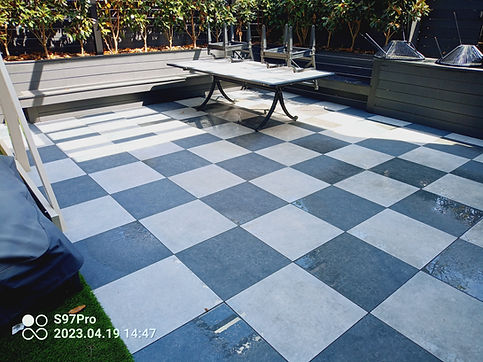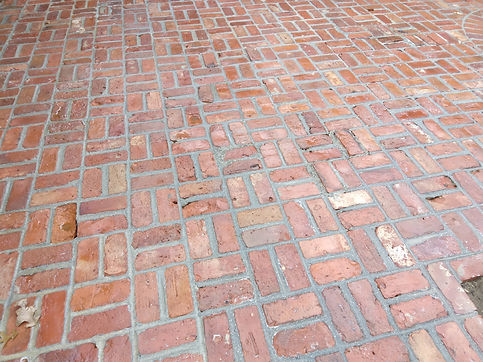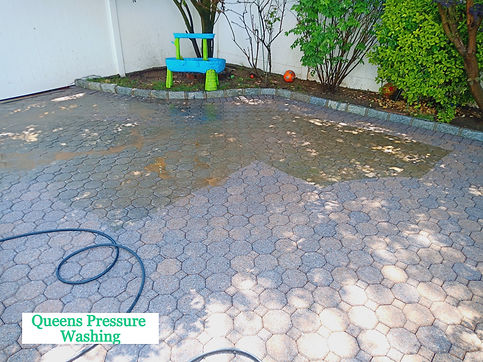Paver Cleaning
Pavers need to washed and treated regularly to prevent vegetation growth and remove grime. Typical vegetation includes weeds, moss, and algae, with the grime being dirt and slime. We offer different cleaning techniques for pavers depending on their age & dirtiness and the future plans of the homeowner. Pricing varies depending on the square footage of the paver installation and the level of grime, but generally softwashing is the least costly method and deep cleaning is the most expensive. Read below for more details.

Softwashing Pavers
Pavers need to be softwashed when they are either brand new, made of delicate materials, or are sealed. Brand new pavers can get damaged from direct pressure washing since they haven't had time to weather and set in. Sealed pavers usually only have surface level grime which is coated on top of the existing sealer and hasn't absorbed into the pores. Pavers made out of delicate materials such as slate or certain concrete mixtures can get etched and broken from pressure washing, so the gentler softwashing techniques are used to clean.

Surface Cleaning Pavers
Surface cleaning involves pressure washing and treating the tops of pavers in order to remove any algae, lichen, dirt, and slime. It only cleans the top face of the pavers, which is recommended for pavers that have been grouted with cement. Some homeowners opt for just a surface cleaning of their pavers because it is quicker and cheaper than deep cleaning, but stronger than softwashing.

Deep Cleaning Pavers
When pavers have weeds or moss growing through the joints of the installation, or when polymeric sand needs to be installed, then pavers need to be deep cleaned. Deep cleaning involves pressure washing all the joints individually to blast out all the vegetation down to the roots followed by a strong chemical treatment which absorbs deep into the paver pores and joints to kill anything that is left. The end result is a nearly sanitized skeleton of the original pavers
